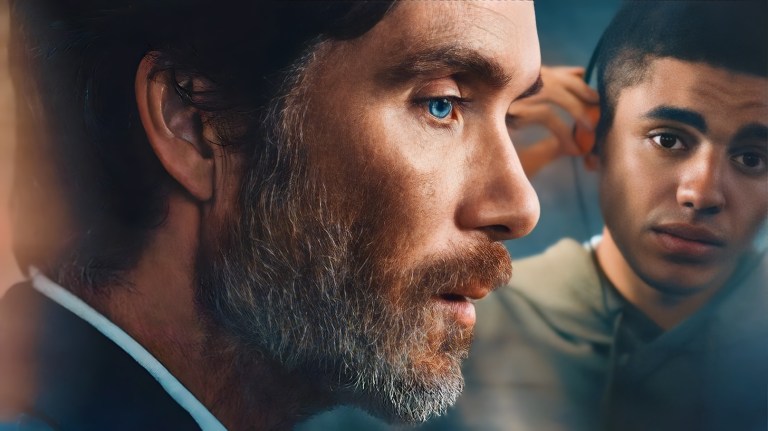
3 Ways New Psychological Thriller “Exposure” Raises Awareness For OCD
Psychological thriller film, Exposure, tells the story of how Tanner's mind unravels years after he is kidnapped, tortured, and poisoned. When his compulsive fits of paranoia get pushed to the brink, we are left to wonder: is his captor still hunting him down or is it all in his head?
Psychological thriller film, Exposure, tells the story of how Tanner’s mind unravels years after he is kidnapped, tortured, and poisoned. When his compulsive fits of paranoia get pushed to the brink, we are left to wonder: is his captor still hunting him down or is it all in his head?
Pre-order the film on Apple TV now to watch this story unfold on July 9th.
One of the best parts about the new psychological thriller film, Exposure, is that it’s rooted in truth. The compulsive behaviors and obsessions that Douglas Smith performs in the main character, Tanner, are rooted in real sentiments and mental health crises that people with OCD face daily. Director, Peter Cannon, has dealt with OCD for over a decade and states that Exposure “takes the intricacies, nuances, and forms the disorder takes, and presents them in the way a sufferer all too often experiences it, so that those who don’t can better understand,” (read more of his statement on OCD and Exposure here).
Exposure is a film that not only keeps its viewers on the edges of their seats with its various twists and turns, it’s also a film that raises awareness for a mental illness that many people are battling day-to-day. Read on to uncover the various ways Exposure raises OCD awareness while unnerving its audience.
All Types Of OCD Are Displayed In The Film
When Tanner attends group therapy for OCD, he encounters a variety of other folks struggling with the same mental illness but in very different ways. Different characters like Ezekial and Izzy have OCD that manifests in ways that Tanner is unfamiliar with.
While some may not know, OCD is not a one-size-fits-all mental illness. In fact, it can present in a multitude of ways ranging from contamination, intrusive thoughts, and more. This is just one of the ways Exposure raises awareness about the illness while keeping the audience on their toes.
The Title “Exposure” Alludes To A Form Of OCD Therapy
The most common form of therapy for treating OCD is called “exposure” therapy. In exposure therapy, the patient is exposed to the root of their fears in a safe setting in order to help them grow more comfortable with it and hopefully encourage less fear around it. Tanner receives this treatment while in group therapy, further uncovering to the audience the details of his terrifying kidnapping.
All in all, the title of the film “Exposure,” is referencing the therapy treatment that Tanner receives alongside many other real-life patients that battle OCD.
It Depicts How Mental Illness Affects Our Support System
One aspect of Exposure that makes it very true to life is that it depicts the way mental illness can affect our loved ones. As Cannon says in his director’s statement about the film, “The consequences of untreated OCD go beyond the person dealing with it. Even the closest of relationships can be eroded after years of emotional burdens, financial sacrifices, and dwindling energy.” We see this stressful dynamic unfold through the character of Tanner’s wife, Nicole (played by Margo Harshman). Watching their relationship erode makes this movie even more complex and true-to-life.











